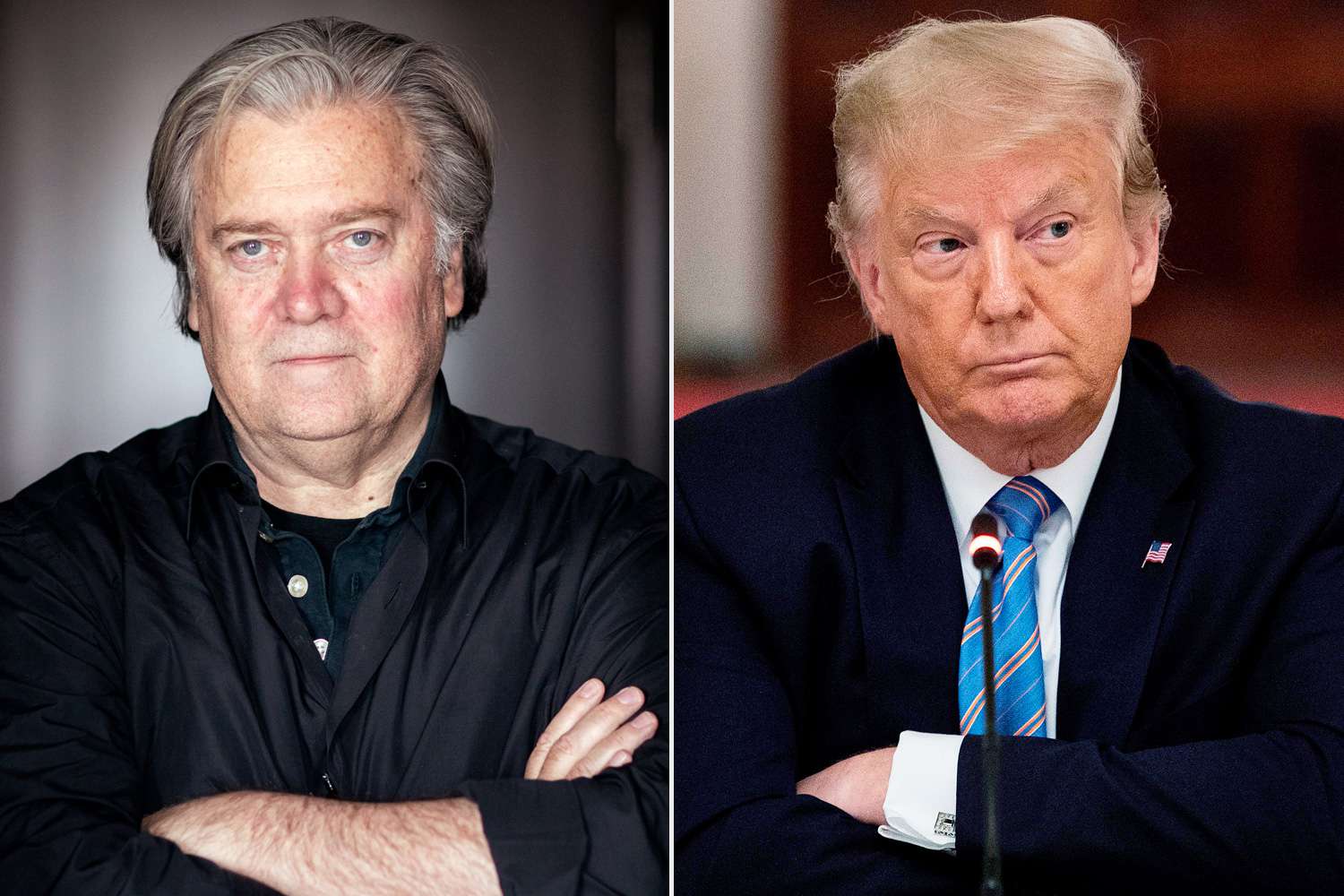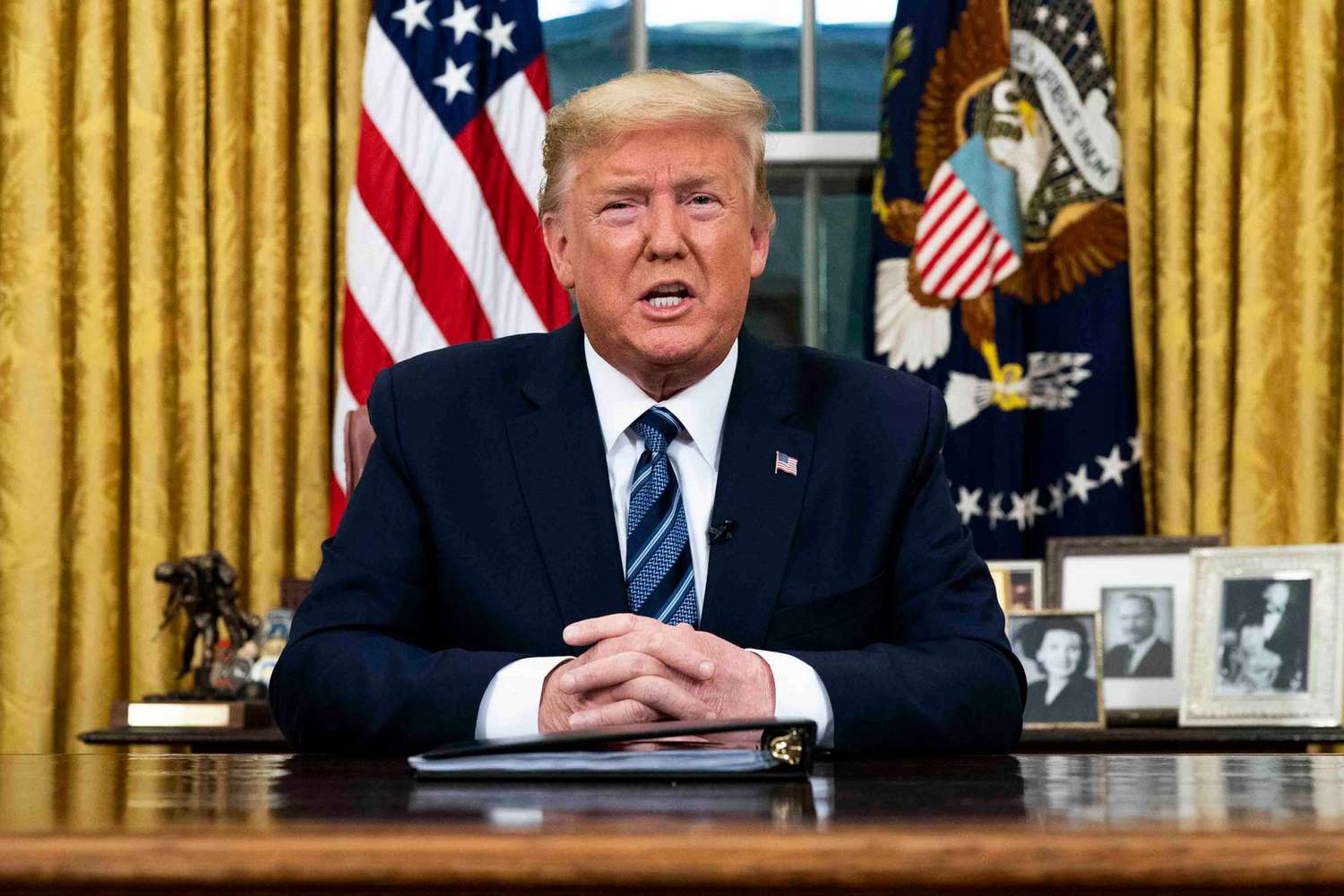Steve Bannon Thought Trump Had Early Dementia and Pushed to Remove Him, 60 Minutes Producer Claims
Steve Bannon left his position as Trump White House chief strategist in August 2017, but his political machinations didn't stop even as his opinion of his former boss changed, a new book by former 60 Minutes producer Ira Rosen claims.
Bannon allegedly believed then-President Donald Trump had "early stage dementia," Rosen writes — claiming that Bannon even started seeking support to remove Trump from office via the 25th Amendment, which would have required the backing of Trump's Cabinet.
Bannon disputes this episode, which is extensively detailed in Rosen's Ticking Clock: Behind the Scenes at 60 Minutes, published last week.
Rosen begins his account in September 2017, after Bannon had left the White House, when his first interview with Charlie Rose premiered. "The story [about Bannon] created a monster," Rosen writes.
Energized by the attention his interview received, the Breitbart News chairman privately told Rosen that he "wanted to run for president if Trump decided he didn't want a second term," Rosen writes.
Bannon also believed "Trump was suffering from early stage dementia and that there was a real possibility he would be removed from office by the Twenty-Fifth Amendment, where the cabinet could vote that the president was no longer mentally capable of carrying out his duties," writes Rosen. "Bannon began to push that story hard."
Bannon claimed "that the president had no attention span, didn't read, and now doesn't listen. He said Trump repeats himself a lot, telling the same story minutes after he told it before," according to Rosen's account in Ticking Clock.
Rosen goes even further, writing that Bannon had also been privately lobbying for support.
"In the summer of 2017, [Bannon, who was still working in the White House] went to the Long Island home of Bob Mercer [a major conservative donor] and briefed him on his trying to build up a consensus to remove Trump from office," writes Rosen, who says he "exchanged more than a thousand text messages" with Bannon over the course of a year, hoping to gain his trust so the show could secure the first interview after Bannon left the White House.
"He mentioned a Sunday prayer service some cabinet officials attended, along with Vice President Pence, as a place where the conspiracy to remove Trump could begin," Rosen writes. "Mercer dismissed the talk and began to have serious doubts about Bannon."
Rosen adds: "The fact that Bannon tried to build support to have Trump removed, after having served as his most senior adviser in the White House, was astonishing."
Not true, says Bannon.
While on his podcast War Room: Pandemic, he addressed Rosen's claim that he brought up the 25th Amendment while at the White House, calling it "a total fantasy, totally incorrect."
"There is no one in this country that has supported President Trump better, tougher, longer than Stephen K. Bannon," Bannon said, adding that he actually wanted Trump to run for president in 2024.
The longtime TV producer, who left 60 Minutes in 2019, is not the first to report on tension between Bannon and his former boss. Trump's mental state has also been the subject of speculation by some notable figures, in part because Trump has lobbied similar accusations at others.
In January 2018, Trump's onetime friends Joe Scarborough and Mika Brzezinski told Katie Couric on her podcast that the former president wasn't a "stable genius" like he had insisted.
"We have a president, who Mika and I believe, through knowing him, is not mentally stable," Scarborough said at the time. "He is less stable [than he was] a year and a half ago when people on his campaign told me they believe he had early onset dementia."
"Nobody feels comfortable working for him. Not one person," Brzezinski added.
Addressing claims about the president's mental fitness, the White House press secretary at the time, Sarah Huckabee Sanders, called them "disgraceful and laughable."
"If he was unfit, he probably wouldn't be sitting there," she said. "This is an incredibly strong and good leader."
Bannon's relationship seemed to suffer irreparable damage in early 2018 after Bannon, who was ousted from the White House in August 2017, was quoted in a scathing tell-all talking about Trump's family.
"Steve Bannon has nothing to do with me or my Presidency. When he was fired, he not only lost his job, he lost his mind," Trump said in a statement at the time.
But the former president has a habit of remaining in touch with former friends, even those who fall out of favor. In January Trump pardoned Bannon, who had been indicted for fraud in a fundraising plan to build a U.S.-Mexico border wall. (Bannon pleaded not guilty.)
Ticking Clock is more than just an inside-look at Bannon's relationship with Trump. Rosen also shares stories about what he calls the "Mad Men culture" at 60 Minutes, one of the country's most popular news shows, where he was first brought on as a young producer in 1980.
In his book, Rosen writes of what it was like to work with powerful figures like Mike Wallace and his interactions with some of the most controversial people of the day, like Ghislaine Maxwell (whom he alleges presented him with an "outrageous proposition") and gangsters Joe Bonanno and John Gotti Jr.
In a chapter titled "Trump," Rosen describes more than just Bannon's alleged attempt to remove the president from office — he also gives details about Trump's daughter and son-in-law, Ivanka Trump and Jared Kushner, who both served as senior advisers to the president.
Problems between Bannon and Ivanka have been reported since the early days of the Trump administration. Rosen adds to those allegations with some of his own.
"[Bannon] particularly dislikes Ivanka, who he says is a spoiled and entitled rich kid," Rosen writes, remembering Bannon saying, "She doesn't like to be scorned in New York, so if she can move her father more to the center, she thinks she would be more accepted by the high society circles."
Ticking Clock is on sale now.
Source: Read Full Article




